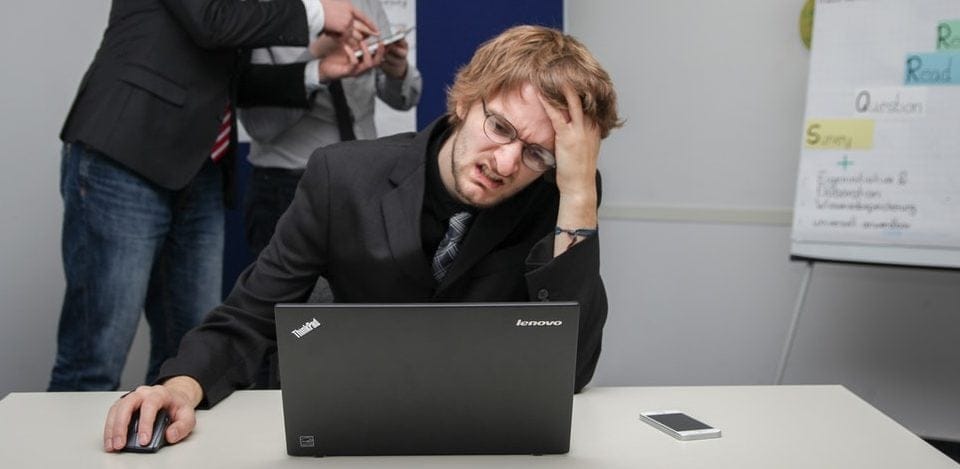Are you feeling worn out, stressed, and overwhelmed? Do you tend to dismiss it thinking “I’m just tired” or “I’m tired because it’s a busy season, I’ll be better once it’s over?” When I say tired, I don’t mean feeling like you need a siesta. I’m talking about exhaustion from doing more than you are physically and emotionally able day after day until you can’t do it anymore. This is what is known as ‘burning out’ and it’s hard to come back from when you reach that point. Here are 3 big warning signs of burn out including a few ways to overcome it.
What is ‘burning out?’
Burning out is defined as “a prolonged response to chronic emotional and interpersonal job stressors.” Put simply, it means that, after a long period of running on fumes, you don’t have the resources to cope with that stress anymore. You’ve burnt out. Unlike tiredness, which you can get some sleep and instantly feel replenished when you’ve burnt out, you’ve burnt through your resources so it’s very difficult to replenish them. In the same way that you can’t continue to drive a car that’s out of fuel, you won’t be able to keep soldiering on when you’ve burnt out; therefore, it’s essential that you recognise when it’s happening so that you can start to put some preventative measures in place.
3 big signs of burn out
So how do you know if you’re more than just tired? How do you know if you’re burning out? It can be a fine line between the two but these are three big warning signs you’re burning out.
Chronic emotional exhaustion
Do you feel depleted of energy? If you’re emotionally, physically, and cognitively exhausted, you probably feel tired, empty, and irritable. Signs of emotional exhaustion usually manifest in difficulty sleeping, getting sick more often, the inability to concentrate, and getting disproportionately angry or irritated with little things that don’t warrant that reaction. If you feel ‘numb’ to emotion and like everything and everyone drains you, this is a big red flag that you’re burning out.
Cynicism/Depersonalisation
It may be as a result of the exhaustion, but another warning sign of burn out is cynicism towards the people your job requires you to interact with. Yes, there are bound to be people that you don’t get on with, but if you’re burning out, you tend to not be able to make the effort with them anymore or not care about making an effort at all. You may detach from others and alienate yourself. Some professionals have even said that they felt detached from themselves completely like they were watching themselves in a play.
Feeling ineffective at work
If you become incredibly unproductive and start to feel ineffective, especially when you’re unable to accomplish tasks that used to be easy for you, these are serious warning signs you’re burning out. When you’re exhausted and unable to concentrate and focus, your capacity to perform will obviously reduce drastically. The problem with this is that it leads to a belief that you are failing and a sense of hopelessness. When employers misinterpret this suffering as low performance and they increase the pressure, this just makes this cycle worse.
Other warning signs of burn out
While these three red flags are characteristics of burning out, everyone is different. Certain types of demands are much more likely to tax some people to the point of burnout while others may be able to cope with those demands but struggle with others. To help you further distinguish tiredness from burnout here are other warning signs that you should look out for:
- Loss of your passion
- Sustained motivation loss
- Dreading work/worrying about it when you’re at home
- Not feeling satisfied with anything/anyone
- Not finding anything fun or funny
- Inability to think straight
- Reduced productivity every day
- Reduced personal accomplishments
- Not feeling replenished after sleep or time off from work
- Problems with sleeping
- Physical problems (headaches, severe abdominal pain, panic attacks, etc)
- Self-medicating (overeating, overworking, drinking, drugs, etc)
Stop dismissing tiredness!
If you think that you might be experiencing burnout, don’t ignore it! It won’t go away by itself and thinking that ‘I’ll just pull myself together’ is a recipe for disaster. Burning out can lead to severe consequences for your health – as it can lead to hypertension, depression, anxiety, increased alcohol and drug use – but it can also come at a high cost to your partner, family and friends, and your employer too. If you feel tired, don’t dismiss it. Take a long hard look at yourself, your habits and your daily work life, and if you identify any of the warning signs you’re burning out above, then start to put self-care first. Start to develop strategies to help you cope with the stress such as yoga or meditation, prioritise sleep, nutrition, and exercise, reduce your exposure to certain job stressors, surround yourself with people who energise you, and seek additional help if you feel that you need it.








